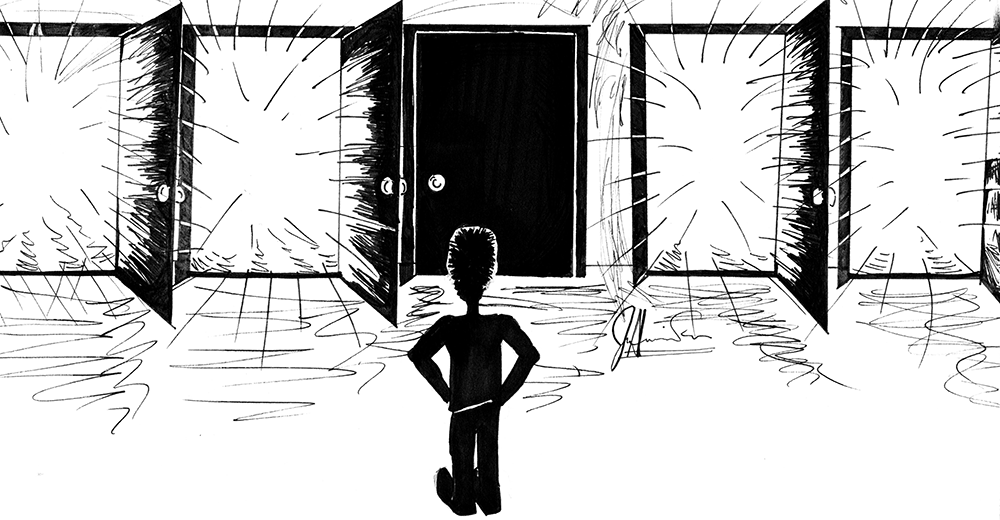
Less than a week after watching my Republicans stomp through an incredibly successful midterm election, it seems odd that I would be writing anything other than a gleeful victory lap. While I am salivating a bit at the prospect of having the largest Republican majority since the Truman administration, I am nonetheless focused on an entirely different set of emotions following election night.
In my mind, the most memorable image from election night was neither Joni Ernst admitting her predilection for fast food biscuits nor Alison Lundergan Grimes’ distinctly ungracious pseudo-concession upon realizing that Elaine Chao would now control the U.S. Senate. Rather, I was most struck by Martha Coakley’s reaction to her soul-crushing loss in the race for Massachusetts governor.
Though Coakley failed to redeem herself in a fashion that many would have liked, she managed to hold her composure as the results announced her second high-profile defeat. Unlike her Senate loss to Scott Brown in 2010, this campaign was not marred by any serious missteps. In fact, she ran a pretty excellent campaign. Robbed of a blue-state victory by forces largely outside of her control, Coakley said she would do “absolutely nothing” differently if able to rerun her race.
While losses and failures are always disappointing, they are all the more disheartening when we feel we have let down others or when the circumstances of our failures lie completely outside of our control. For a politician like Coakley, there must undoubtedly be a great feeling of obligation to produce a victory for the countless people who have given time and money to your own campaign. After coming up short, just facing those people seems incredibly difficult.
The ability to offer a quiet “thank you” requires a great deal of character and speaks highly of those who offer it. Even more upsettingly, some disappointments really are uncontrollable. While in these situations we can avoid feelings of regret, we nevertheless have no recourse for growth or betterment. Rather, we simply watch as our former dream goes up in smoke.
The opportunities afforded by Georgetown invariably lead to high-profile disappointments. Even those of us who are blatant trophy collectors seem incapable of unchecked runs of wins. Usually, our losses are through no faults of our own. It wouldn’t even be fair to say we lose to someone better. Instead, a scarcity of opportunity throws us into the realm of pure chance, and sometimes we simply aren’t lucky. In such times, I am drawn to a quote from one of my favorite authors, Corrie ten Boom: “When a train goes through a tunnel and it gets dark, you don’t throw away your ticket and jump off. You sit still and trust the engineer.”
It may sound naive to say that the solution to disappointment is to simply trust that God will hand over some new plan, but I think in the context of Georgetown, this is a good starting point. This community is a loving one filled with good people — in my disappointments, it has been personal connections here that have pulled me through.
While I have been blessed with readily available friends and mentors, this experience has yet to permeate all corners of Georgetown, and expanding a network of empathy is a great next step for our campus as we work to address the well-being of our students. For as long as I have been at Georgetown, discussions have raged about the failures of various support structures within the university. In my estimation, these structures could be rendered obsolete if we demonstrated genuine concern for our fellow Hoyas through a deliberate, unified effort.
In all things, we should be intentional in our willingness to support fellow community members who are suffering from sudden defeats and disappointments. Perhaps even more bravely, we need to be ready to fall. When we put ourselves forward, we may well get burned, but we must trust that this community will catch and support us.
Fundamentally, we must reimagine the ways we deal with the well-being of one another. Instead of creating structures and university initiatives, we should focus our efforts introspectively. If each of us invests in personal resilience and a campus-wide network of care, we can serve as the embodiment of God’s love to one another.
 Tim Rosenberger is a junior in the College. This is the final appearance of The Church and Statesman this semester.
Tim Rosenberger is a junior in the College. This is the final appearance of The Church and Statesman this semester.




















Why is "The Church and Statesman" still a thing? • Nov 12, 2014 at 2:10 pm
“Instead of creating structures and university initiatives, we should focus our efforts introspectively.”
Uhhh… what? I must have forgotten how all the Catholics were “the embodiment of God’s love to one another” in their gay-bashing and violent attacks prior to the LGBTQ Resource Center being stood up. Or in their current relationship to Hoyas for Choice.
Get your weird minimalist state crap out of my university.